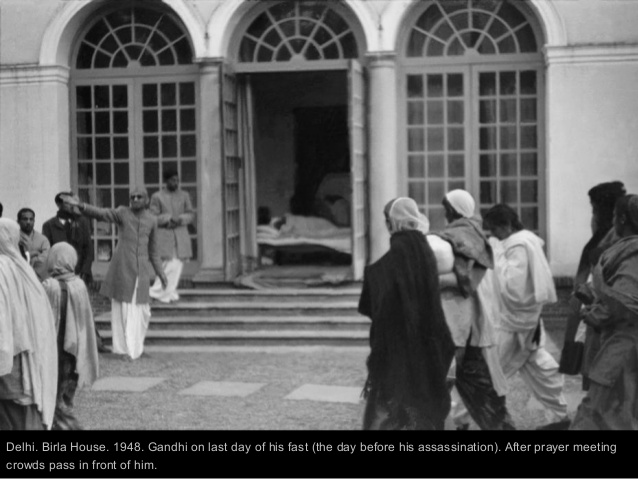LIVING DEMOCRACY
[ II ]
The Language of Oppression
Discriminatory practices damage the fabric of societies and alienate those who are discriminated against. How can women rediscover the strength within themselves to fight back oppression and carve out for themselves a life of dignity and respect? Here is an experiential narrative that throws light into this matter of concern.
Ananya Pattnaik is currently pursuing Sociology Honours from Jesus and Mary College, University of Delhi.
The trail leading to the majestically lit India Gate is speckled with people, ranging from families who have arrived here as a weekend getaway from their choreographed lives to new couples who just want to share a few laughs amid soft lights and bubbles blown by street vendors endlessly. Police officers nonchalantly patrol the lawns making everybody feel secure at this mighty monument that reeks of patriotism and fearlessness. As my friend and I waddle on the grass looking for a spot to fold our legs and sit at ease to relish our bhel puri, we notice two burly, broad-shouldered guys, each wearing a black jacket, giggling as they sneakily try to click us with their sleek phone cameras. Deciding that it would be sensible to avoid a confrontation, we alter our direction and look for another spot, making it very obvious to the guys that we are uncomfortable. The stubborn duo does not budge. They chase us all through the lawns in a way that is not even slightly subtle, casting at us weird smirks. They stop if we stop, change courses if we do to the point that it is alarming. We consider reaching out to a police officer but are held back by the idea that the stalkers may hold a grudge and seek revenge, since we live in the city alone and have been exposed to many similar stories. Frustrated by the scenario, we make up our minds to leave. As we stand at the edge of the road looking for autos, they stand behind us, not batting an eyelid. As we step inside the auto and the auto wala rides a few meters, I peek behind just in time to witness them laughing loud, uncontrollable laughs and high fiving each other.
In the wake of the 2012 Delhi gang rape case, Delhi has been infamously named as the Rape Capital of India. It has garnered excessive attention to the problem of patriarchy. Patriarchy is seen as a system of society or government in which men hold the power and women are largely excluded from it. This entails several complex and multifaceted concepts and interpretations surrounding it. But the power that this definition talks about is a very simple influence that manifests itself in humdrum, everyday situations. The incident that I narrated earlier may seem minor, but it was a very powerful demonstration of this deep-rooted evil. The fact that some men feel innately powerful because of their gender and exploit this power to intimidate the other gender, be it in the form of stalking, eve-teasing or even wife-beating, so as to derive a sense of gratification from it is a dangerous thing. In this case, pursuing us in the late hour, at a national monument, despite the presence of the people and the police and pushing us into a helpless position gave them a sense of achievement and pleasure. Our vulnerability fuelled their ego as they laughed away in triumph. The need for this validation is so strong amongst some men that it exceeds beyond the considerations of state law, authorities etc. Due to this, no matter how stringent the laws are made, the crime rates refuse to decline in a significant degree.
Even in the contemporary era when we have advanced by leaps and bounds, the internalization of this subjugation amongst women is more deep-rooted than we believe it to be. While being raised, women get socialized to take a backseat and put their needs beneath everyone else’s. Through little instructions to laugh more coyly, to keep their voices down, to sit with legs closed together, they are subconsciously fed that their bodies are not theirs to own and others can always stake a claim in them. It instigates women to de-prioritize their needs and comforts in favour of keeping the peace or convenience of others intact and in that process, they tag all sorts of justifications to why they act the way they do without looking at it as a form of suppression. Consciously or not, men aggravate this stereotype by using backhanded compliments at the expense of insulting women, slut-shaming on the basis of conduct and clothing, mocking men who are feminine and looking down upon menstruation and child birth.
In the instance that I narrated, we could have simply walked up to the police in the vicinity and complained to them about how much their behaviour bothered us. But we choose to be far removed from the situation ourselves, like we were the ones at fault. Imagine how many victims of sexual abuse, groping, eve-teasing, stalking etc. have been through this dilemma and have given in to it by keeping quiet. We have taken our secondary positions for granted to the point that we are, to an extent, immune to it.
As long as women do not reduce their tolerance to injustice and take that one unconventional step to speak up no matter how insignificant they deem the situation to be, men will relentlessly pursue what they desire until they get their way. Women have to self-teach themselves to get rid of the toxic tendency to absorb humiliation and be okay with it. It is true that power can be manifested in the worst form if it is invisible to the oppressed.
This article is published in The New Leam, JANUARY 2017 Issue( Vol .3 No.19) and available in print version. To buy contact us or write at thenewleam@gmail.com
The New Leam has no external source of funding. For retaining its uniqueness, its high quality, its distinctive philosophy we wish to reduce the degree of dependence on corporate funding. We believe that if individuals like you come forward and SUPPORT THIS ENDEAVOR can make the magazine self-reliant in a very innovative way














